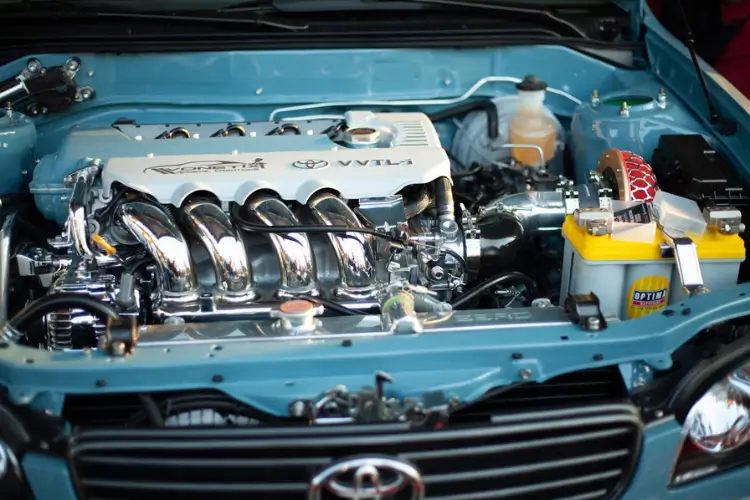Vehicle tuning involves adjusting the engine management system to optimize performance, efficiency, or driving comfort. Whether you’re seeking to boost horsepower, enhance fuel economy, or simply improve the driving experience, tuning can offer significant benefits. However, grasping the details of vehicle tuning is essential for achieving the best results. Here are five critical aspects to understand when exploring vehicle tuning.
Fundamentals of Vehicle Tuning
Vehicle tuning primarily involves modifying the engine control unit (ECU) to enhance how the engine operates. The ECU acts as the central control system, managing various aspects such as fuel injection, ignition timing, and air-fuel mixtures. Tuning can vary from minor adjustments to more comprehensive modifications involving both hardware and software changes. The main objectives are often to increase performance, optimize fuel efficiency, or achieve a smoother ride. Tuning can be categorized into performance tuning and efficiency tuning. Performance tuning aims to enhance the vehicle’s power and speed, while efficiency tuning focuses on improving fuel consumption and reducing emissions. Each type requires different techniques and tools, but both involve recalibrating the ECU to meet specific performance goals.
The Process of ECU Remapping
ECU remapping is a popular tuning method that involves altering the vehicle’s ECU software to modify engine parameters. This process can lead to notable improvements in engine performance, including higher horsepower and increased torque. For those driving a VW, a VW ECU tune can significantly enhance performance by adjusting the engine’s fuel maps and ignition settings. Remapping the ECU requires specialized knowledge and equipment, as improper adjustments can lead to engine damage or diminished performance. It is crucial to engage a skilled tuner with experience in your vehicle’s make and model. Additionally, to avoid legal complications, ensure that any changes comply with local emissions standards.
The Advantages of Dyno Tuning
Dyno tuning provides a precise approach to tuning by using a dynamometer, a device designed to measure engine performance metrics. During a dyno-tuning session, the vehicle undergoes a series of tests to assess its power output, torque, and other performance indicators. This data is then used to fine-tune the ECU settings for optimal results. Dyno tuning allows for highly customized adjustments, as it provides immediate feedback on how changes to the ECU affect engine performance. This method is especially valuable for high-performance vehicles or those with extensive modifications. By analyzing dynamometer data, tuners can make accurate adjustments to maximize performance while ensuring the vehicle remains reliable.
Impact of Hardware Modifications
While ECU tuning focuses on software changes, upgrading hardware components can also significantly influence vehicle performance. Enhancements such as improved air intake systems, exhaust systems, and intercoolers can have a substantial effect. These hardware modifications often work in tandem with ECU tuning to optimize overall performance.
For example, a high-performance air intake system can increase the amount of air flowing into the engine, leading to better combustion and greater power output. Similarly, an upgraded exhaust system can reduce back pressure, improving engine efficiency. When paired with ECU remapping, these hardware upgrades can result in considerable performance gains.
It’s important to remember that not all hardware upgrades are universally compatible. Consult with a professional tuner to ensure that any modifications are appropriate for your vehicle and won’t lead to unforeseen issues.
Ongoing Maintenance and Monitoring
After tuning your vehicle, regular maintenance and monitoring are essential to ensure that the modifications continue to deliver the desired performance. Routine checks, such as monitoring fluid levels, inspecting components, and keeping track of engine performance, are vital for maintaining optimal condition. Advanced diagnostic tools can be used to track engine parameters and detect any potential issues following tuning. Many modern vehicles come equipped with sophisticated diagnostic systems that provide real-time data and alert you to any problems that may arise. Consider the potential effects of tuning on your vehicle’s warranty as well. Some modifications may void the manufacturer’s warranty, so it’s wise to review the warranty terms before making any changes.
Conclusion
Grasping the essentials of vehicle tuning is crucial for unlocking your vehicle’s full potential. From basic ECU remapping to detailed dyno tuning and strategic hardware upgrades, each aspect of tuning offers unique advantages and considerations. By understanding these factors, you can make well-informed decisions and achieve the performance enhancements you seek.
Whether your goal is to increase engine power, improve fuel efficiency, or enhance the overall driving experience, vehicle tuning can be a transformative process. Work with experienced professionals, maintain your vehicle diligently, and ensure that all modifications adhere to legal and warranty requirements. With the right approach, tuning can elevate your driving experience and make your vehicle truly exceptional.




